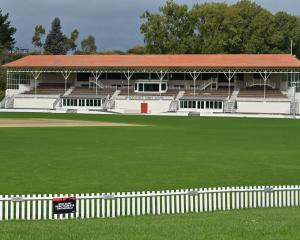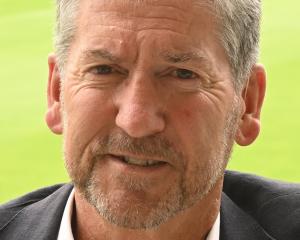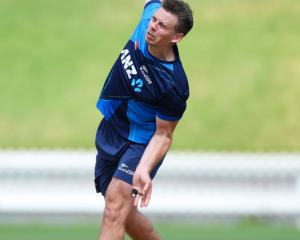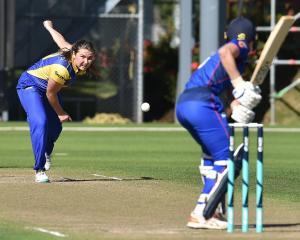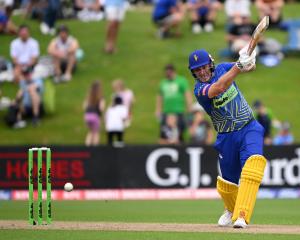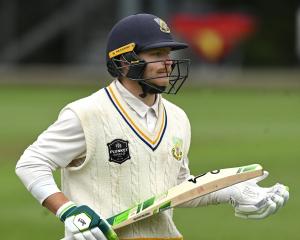Newly appointed Otago coach Rob Walter will relocate to Dunedin from Pretoria in September to start an exciting new chapter in his coaching career. Cricket writer Adrian Seconi caught up with the 40-year-old via email.
Adrian Seconi: What made you decide to apply for the Otago coaching role when everything was going so nicely for you at the Titans?
Rob Walter: Following my visit to New Zealand with the Proteas in 2012, I was really amazed by the beauty of the country and saw a significant improvement in the Black Caps' performance on the field as well as the processes that fed into the national team's performance.
This started a dialogue between myself, Mike Hesson and Brendon McCullum around their thoughts on New Zealand Cricket ... and potentially my involvement in NZC at some level sometime in the future.
I did not think it would happen until a little later on in the piece but an opportunity presented itself, and so I had to consider whether the it was the right time to act on that opportunity.
I loved every moment of my time [at the Titans] and in my mind the Titans are the top franchise in South Africa, so it was a privilege to be part of that legacy. However, the Otago job [offered] me [an opportunity] to grow as a coach in a new environment with different challenges.
I hope to be able to make a meaningful contribution in a different system, in a different country, and through creating the right environment produce some quality international grade cricketers.
AS: I guess you are familiar with a few of the players here but what do you make of your squad of contracted players?
RW: [I] have been fortunate enough to be work with a couple of them in different environments. The majority, however, are new to me barring their stats and information which I have been given from the current coaching consultants.
I think, in some ways, this is positive because it allows me to form my own opinions on the playing group and not have any preconceived thoughts on specific strengths and weaknesses, but rather zero in on assisting them in growing their games from.
AS: Have you identified any weaknesses or are you planning on doing that once you get your feet on the ground?
RW: It can be dangerous to decide on what a team's strengths and weaknesses are based solely on their position on the log or on personal stats.
While they do paint a picture, sometimes they do not tell the full story so I will allow myself time to get to know the players and their games and how we will go about combining these strengths to create some sustained success for the Volts.
AS: I understand your wife Heather and baby son William are staying behind in Pretoria until you get settled. It is a pretty big move. How are you feeling about it?
RW: Absolutely, it is a big move and I will miss my family hugely, initially. But as a cricket coach I guess you become accustomed to moves like these and the sacrifices that go with it.
As a family you develop the necessary mechanisms to cope with being apart. That being said, I am hugely excited by the next chapter both in my coaching career and for us as a family and can't wait to to get started.
AS: Did you play cricket yourself? What level did you get to?
RW: I played up to franchise A level or the equivalent thereof. If I had to compare myself to anyone it would be a poor man's Jacques Kallis! That is, of course, said in jest.
AS: The Volts have been a pretty decent limited-overs outfit in the last 10 years or so but success has eluded them in first-class cricket. I understand you are keen on lifting their performances in first-class cricket?
RW: Absolutely. I believe that first-class cricket is the ultimate test of a cricketer and a team's quality. If you can excel in that format you will also find success in the shorter formats.
The Volts seem to have a pretty strong short-format identity and, in my opinion, strengthening the longer format will only serve to build on that. It doesn't happen overnight and requires a shift in both work ethic and mental approach.
AS: How would you describe your coaching style?
RW: That's always a tricky question to answer as I believe the successful coaches are always evolving their style to suit a specific environment and help players grow.
But I guess, if I had to be more specific, I would hope that at the end of my tenure, whenever that may be, people and players will look back and say that I was hugely passionate about the game of cricket and the people that play it.
That I was able to create a highly successful environment for the players, one which encouraged personal growth and that allowed them to really enjoy this beautiful game of cricket. That would be a good reflection of what I see my coaching style to be.


